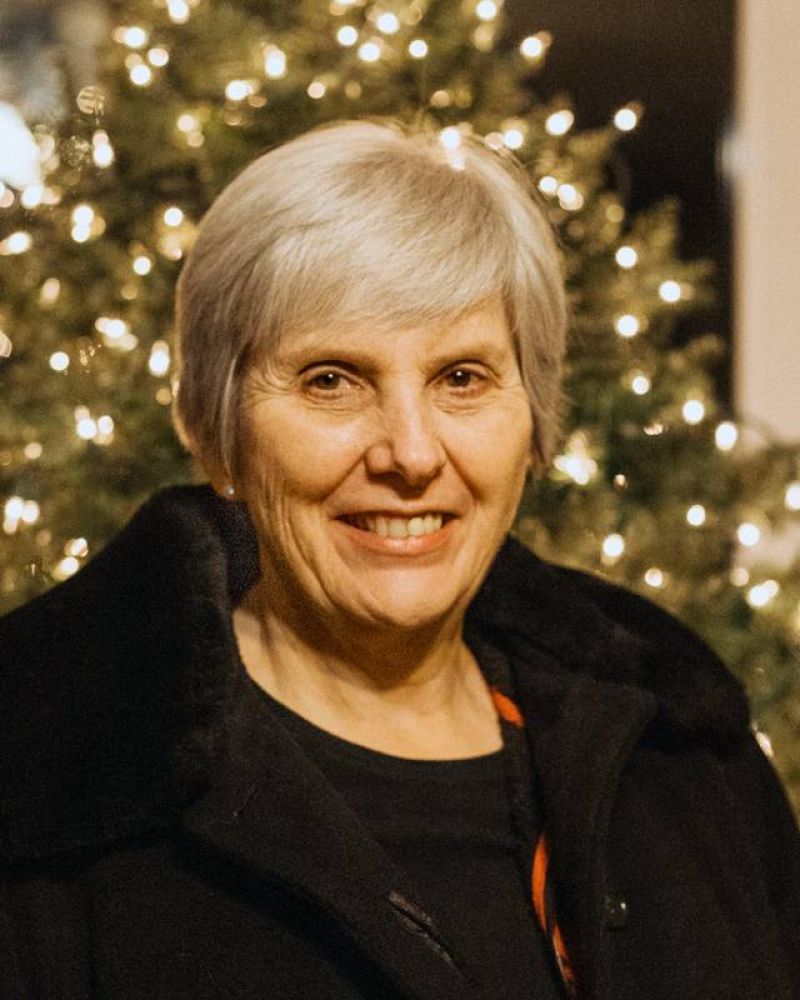Jeff Green | Dec 08, 2021
After over 18 years “coming alongside” seniors in the central and northern parts of Frontenac County, Catherine Tysick has resigned from Rural Frontenac Community Services (RFCS).
When she started at what is now RFCS, it was called Northern Frontenac Community Services at the time, a reference to the area from Verona north to Plevna and Cloyne, that was known as “the North” among Frontenac County residents.
Her first job was to set up two pilot projects, a friendly visiting program and a telephone reassurance program.
From the start, her interest in the world that she was immersing herself in, and the wisdom and strength of the people who made up that world, were her biggest assets.
She remembers the first trip she made to the Clarendon and Miller Hall, in Plevna, to promote her programs.
“I was meeting with the quilting group. They thought that as long as I was there I should quilt, and they knew a lot about quilting. I ended up cutting my finger and spilling blood on the quilt. They were very gracious about it, but word got around the community pretty quickly. I went a few weeks later to visit a woman in her home, not someone who had been at the hall that day, and she said 'I have something for you, and gave me a thimble, which I still have as a memento, even though I'm still not much of a quilter,” she said last week from her office in Sharbot Lake.
Her second job was to start up a weekly Day Away program in Parham for the frail elderly. That program got off to a good start, sort of. A couple of weeks into the program, which began in September, Catherine thought it would be a good idea to bake pies with the participants.
“It went really well and everyone took home a pie, including me. But when I served my pie to my family, they said it didn't really taste that good. That's when I realised that I had put salt instead of sugar in the pies. I had to call everyone to tell them not to eat the pies. Nobody has let me live that down.”
In 2006, Ruth Geddes, the long serving Director of Seniors programming at the agency, decided it was time to retire, and Catherine took on a management role.
It was a bit of a complicated transition for her, because she loved the front line work with seniors, but it has been rewarding, as well, to work through the changes in the way that services have been funded, and delivered, to rural seniors, as the Province of Ontario works towards a comprehensive 'aging at home strategy'.
Instead of being funded directly by the Ministry of Health, what have become known as “Community Support Services” (CSS) began to be managed by Local Health Integration Networks (LHINS).
“The LHINS were very supportive of us, but it has meant a lot more administration and reporting as we developed a basket of services that are available from all of the CSS agencies across Southeastern Ontario.”
Over the last couple of years, the LHINS have been replaced by Ontario Health Team. The future for Community Support Services is quite secure, however, because they are the most effective way to provide support for seniors, and their families, to allow people to continue thriving in their own homes as they age. This is a key component of government policy as the much anticipated “aging tsunami” picks up steam.
“We have been able to have a voice at the table as the Health Teams have been under development.”
COVID has been difficult for seniors, and for community support services as well.
Some of the programs, including Congregate Diners, a monthly meal in different communities that always includes entertainment of some sort, has not been running and the “Meals on Wheels” program has grown much larger.
“We have done what we can by calling people and checking in, but not being able to meet directly, or to gather, has made for a lot of challenges,” Catherine said.
As she leaves her position, she reflects on her first insight working with seniors, which is one that strikes at the core of the aging at home strategy.
“There is a lot of value, and a lot of joy, in the lives of seniors who are connected to their community and family. We are not there to take over their home, we are there to walk with them, to support and honour them and to learn from them as well. They know a lot about life and how to live it.”
More Stories
- Total Burn Bans In Frontenac County, Addington Highlands
- Verona and Sydenham Ballpayers Win National Championship With Kingston Colts
- Sweet Music and Some hard Truths At Blue Skies MusicFestival
- Building a Medical Service in Sharbot Lake
- The Local Brewing Scene – Kick and Push Continues to Grow
- Parham Fair Celebrates 133 Years Ion Spite of Setback
- Seventh Town to play Sharbot Lake As Part of Mini-Tour
- Repair Plan For Micro-Fit In North Frontenac
- September Closures for Northbrook And Sharbot Lake Beer Stores
- This "Doc Is Not In Anymore" After 54 Years

